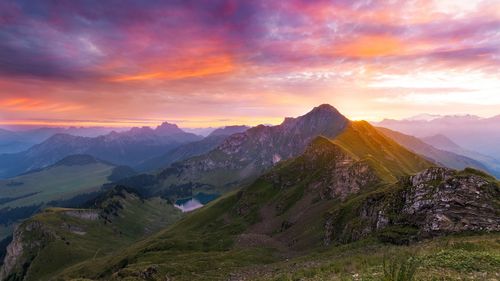The Intersection of Culture and Religion: How Beliefs Shape Our Lives
Religion and culture are two significant components that influence and mold how individuals perceive the world around them. While the two concepts are different, religion and culture inform and impact each other. In this article, we’ll explore the relationship between religion and culture and discuss how beliefs shape our lives.
What is Culture and Why is it Important?
Culture can be defined as a way of life for a group of individuals for a particular society or community. It includes shared values, beliefs, customs, behaviors, and artifacts that characterize a group or society. Culture shapes the way people live, think, and communicate with each other. It influences every aspect of life, including social behavior, education, and food.
How Does Religion Impact Culture?
Religion plays an essential role in shaping culture. It has a significant impact on social norms and values, ethics, and morality in a society. Religion influences how communities perceive various aspects of life, including family, relationships, education, and politics. It also impacts the language, art, and music of a community.
How Does Culture Influence Religion?
Culture also significantly influences religion. It shapes how beliefs and practices are expressed and understood by individuals. Culture impacts the way people worship, perceive the divine, and understand the world around them. Practices such as prayer, fasting, and religious celebrations are often shaped by cultural values and beliefs.
Examples of Religion and Culture Intersection
One of the most prominent examples of the intersection of religion and culture is how religious festivals are celebrated. In Hinduism, the festival of Diwali celebrates the victory of good over evil and is celebrated with fireworks and the lighting of lamps. The practice of lighting lamps is also prevalent in Buddhism. In some cultures, the celebration of Christmas is not just a religious festival but also a cultural event celebrated with family and friends.
Another example is the role of religion in political events. In the United States, religion and politics are intertwined. During campaign periods, politicians often express their religious affiliations to gain favor with specific groups of voters. Similarly, religious leaders may also use their platform to voice opinions on political issues.
The Importance of Understanding the Intersection of Culture and Religion
Understanding the intersection of religion and culture is essential to foster cultural literacy, tolerance, and religious pluralism. In a globalized world where people from different backgrounds come into contact with each other, it is important to understand and respect cultural and religious differences. This understanding can help prevent misunderstandings and conflicts and bring people together.
Conclusion
The intersection between religion and culture is a complex and interconnected phenomenon. Each influences and shapes the other and impacts individuals and communities in various ways. By understanding the intersection of culture and religion, we can learn to respect, appreciate, and celebrate our differences.
(Note: Do you have knowledge or insights to share? Unlock new opportunities and expand your reach by joining our authors team. Click Registration to join us and share your expertise with our readers.)
Speech tips:
Please note that any statements involving politics will not be approved.
